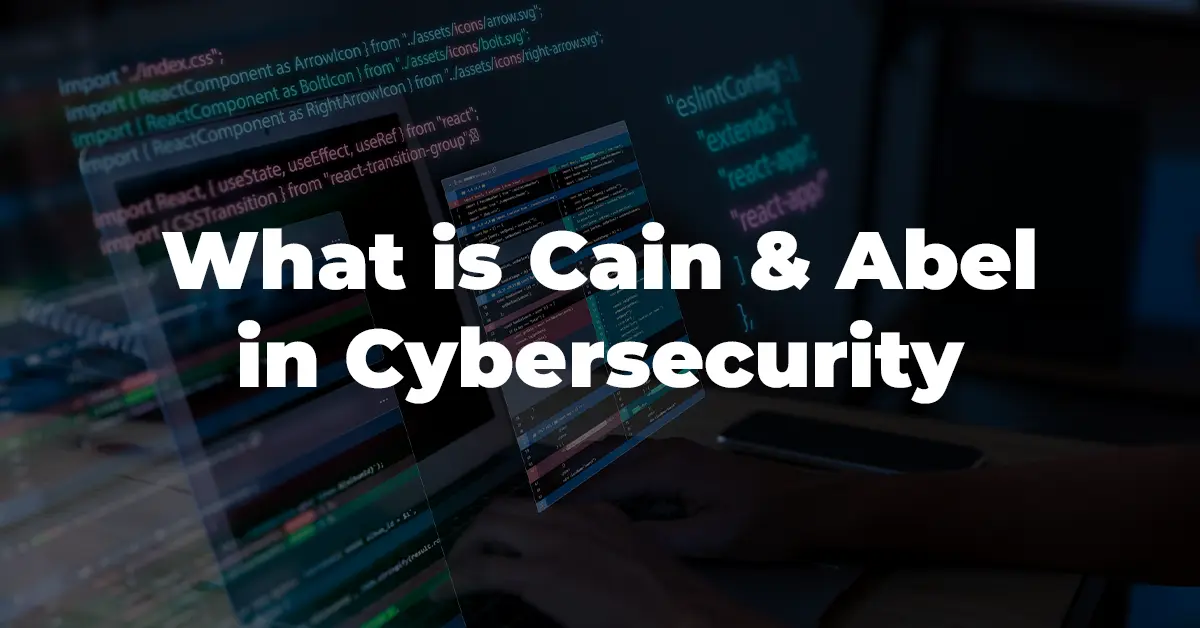The world of cybersecurity is growing fast and so is the demand for skilled professionals who can protect systems, data, and digital infrastructure from ever-evolving threats. For years, many believed that breaking into cybersecurity required a computer science degree or a formal academic background. But today, that belief is outdated. More and more professionals are entering the field through non-traditional paths, proving that a degree is no longer a requirement to start a successful career in cybersecurity.
In fact, what matters most now is your ability to solve problems, learn quickly, and stay curious. Employers are looking for candidates who can think critically, adapt to new tools, and show hands-on experience. If you’re passionate about technology and security and ready to put in the work there are plenty of accessible, affordable, and effective ways to start your journey, no college degree necessary. This guide will walk you through what cybersecurity really involves, what skills you need, and how to build a career from the ground up.
What Cybersecurity Actually Involves (Before You Jump In)
Before diving into certifications or job applications, it’s important to understand what cybersecurity actually means. It’s not just about hacking into systems or catching cybercriminals. Cybersecurity is a broad field that includes multiple roles, each with its own focus and required skills.
For example, SOC Analysts (Security Operations Center Analysts) monitor systems for suspicious activity and respond to alerts. Penetration Testers also known as ethical hackers test systems for vulnerabilities to help organizations fix weaknesses before malicious hackers exploit them. If you’re more interested in policy and oversight, you might pursue a career in Governance, Risk, and Compliance (GRC). There are also Blue Team roles focused on defense, and Red Team roles focused on offense both are critical to a strong security strategy.
It’s easy to get caught up in the hype flashy job titles, big salaries, and quick-certification promises but the truth is, cybersecurity is a long-term, evolving field. It requires dedication, ongoing learning, and a willingness to work through complex technical and organizational challenges. Understanding your interests and the different career paths available will help you choose the direction that suits you best and avoid wasting time on roles that don’t match your skills or goals.
Skills You Need (Not Just Certifications)
While certifications can help open doors, especially at the entry level, they aren’t a substitute for real-world skills. To succeed in cybersecurity, you first need a solid grasp of IT fundamentals. This includes understanding how networks function, how operating systems work (especially Windows and Linux), and how to write basic scripts using languages like Python, Bash, or PowerShell. These foundational skills are the building blocks of almost every cybersecurity role.
Beyond technical know-how, soft skills are equally important. Cybersecurity professionals need to think critically, solve problems under pressure, and communicate effectively. Whether you’re explaining a security risk to a non-technical manager or documenting a vulnerability, your ability to translate complex information into clear, actionable language can set you apart.
Ultimately, what employers want to see is not just what you’ve studied, but what you can actually do. The best way to demonstrate this is through practice hands-on labs, personal projects, capture-the-flag (CTF) competitions, or contributions to open-source tools. When you combine technical skills with real experience and a strong work ethic, you’ll prove that you’re ready, degree or not.
Certifications That Replace a Degree (And Which to Start With)
Start with Beginner-Friendly Certifications
If you’re just getting started in cybersecurity without a degree, certifications are a great way to validate your skills and stand out to employers. Fortunately, you don’t need to jump straight into advanced or expensive certifications. There are a few widely respected, entry-level certifications designed for beginners:
- CompTIA Security+ – Recognized globally as a baseline cert for cybersecurity knowledge. It covers threats, network architecture, risk management, and more.
- Google Cybersecurity Professional Certificate – Offered on Coursera, this is beginner-friendly and developed by Google to help learners transition into security roles.
- ISC2 Certified in Cybersecurity (CC) – A newer, free entry-level certification from the same organization behind CISSP, designed to help people break into the field.
These certs are mentioned in thousands of job listings for roles like SOC Analyst, IT Security Specialist, and more. They’re recognized by hiring managers, HR software systems, and recruiters — making them strong alternatives to a college degree, especially when paired with hands-on experience.
How to Study Affordably or for Free
You don’t need to spend thousands of dollars to prepare for these certifications. There are plenty of free or low-cost options:
- Professor Messer – Offers high-quality free Security+ videos and study guides.
- Coursera & edX – Run sales and financial aid options for courses like the Google certificate.
- YouTube channels like NetworkChuck and John Hammond – Provide deep dives, walkthroughs, and lab content at no cost.
When using these resources, focus on quality over quantity. Pick one certification to start with, and stay consistent. You’ll not only gain technical knowledge but also build the discipline needed to grow in the field.
Free & Low-Cost Learning Resources That Actually Work
Real Platforms with Proven Success
There’s no shortage of cybersecurity learning platforms out there, but a few have consistently helped newcomers build real-world skills and even land jobs:
- TryHackMe – A gamified platform offering beginner to advanced labs. Great for learning concepts interactively and tracking your progress.
- Hack The Box (HTB) – Focuses more on offensive security and penetration testing. Best for those interested in ethical hacking.
- BlueTeam Labs Online – Offers defensive security simulations like log analysis, threat hunting, and malware reverse engineering.
These platforms give you real environments to work in, which is crucial because most employers prioritize practical skills over theory. They’re also affordable or offer free tiers, making them accessible to those without large budgets.
Avoid the Trap of Course-Hopping
One of the biggest challenges new learners face is jumping from one course to another without finishing any of them. This leads to shallow understanding and frustration. The key to building momentum is structure and focus. Pick one platform (like TryHackMe) and one path (like the “Complete Beginner” module), and stick with it until you finish.
Consistency matters more than speed. Set a learning schedule, track your progress, and avoid distractions. This will help you gain confidence, build habits, and actually retain what you’re learning — which pays off far more than consuming scattered information.
Build a Hands-On Portfolio to Prove What You Know
Labs, Writeups, and Projects That Show Real Skill
When you apply for jobs without a degree, one of the best ways to stand out is with a portfolio of hands-on work. This includes:
- Labs completed on TryHackMe or Hack The Box
- Writeups of vulnerabilities you’ve found or simulated
- Simple tools or scripts shared on GitHub
- Reports from bug bounty programs (even if they weren’t rewarded)
This kind of work proves you don’t just memorize concepts — you understand and apply them. Employers love to see candidates who document their learning, think critically, and take initiative.
Showcase Projects — Not Just Study Notes
A portfolio isn’t about pasting course notes or listing certifications. It’s about showing real-world thinking. Write blog posts or GitHub READMEs that explain how you solved a problem, what tools you used, what went wrong, and how you fixed it.
For example, instead of just saying “I completed a TryHackMe room,” explain what you learned from it: the attack path, the tools used, and how the vulnerability could’ve been mitigated. This level of detail shows employers you can analyze, communicate, and troubleshoot essential skills in the cybersecurity world.
Publishing your work whether on a personal blog, GitHub, or LinkedIn also helps build your digital presence, increases your chances of being found by recruiters, and builds your confidence along the way.
Start Networking (Without Feeling Like a Beginner)
Use LinkedIn, Discord, and Local Communities to Connect
One of the most overlooked steps in getting into cybersecurity without a degree is networking but it doesn’t have to feel awkward or forced. Platforms like LinkedIn are incredibly valuable for connecting with professionals, joining cybersecurity discussions, and even getting noticed by recruiters. Start by following people in roles you’re aiming for, engaging with their posts, and sharing your own progress or insights from labs you’ve completed.
Beyond LinkedIn, many cybersecurity professionals hang out on Discord servers dedicated to learning, CTFs (Capture the Flag competitions), and mentorship. Try communities like CyberMentorDojo, TryHackMe Discord, and BlueTeamLabs to find others at your level, get advice, or ask questions without judgment.
If you prefer real-world interactions, look for local tech meetups, BSides conferences, or OWASP chapters in your area. These events are often beginner-friendly and filled with people who remember what it was like to start from scratch many are willing to help or refer you.
Contribute to Forums — Even as a Learner
You don’t have to be an expert to add value to forums like Reddit (r/cybersecurity, r/AskNetsec), Stack Overflow, or InfoSec Twitter. Asking thoughtful questions, sharing resources that helped you, or even just thanking someone for their guide is a form of networking. These platforms allow you to be visible, build credibility, and find mentors or peers.
By actively contributing even in small ways you begin to build a reputation and presence that can open doors long before your résumé hits a recruiter’s inbox.
Build Relationships Before You Land Your First Job
Networking isn’t just about “who can hire me” it’s about building real relationships over time. Reach out to people whose work you admire. Comment on GitHub projects, reply to posts, or offer to collaborate on writeups. These low-pressure connections often lead to referrals, freelance gigs, or job leads down the road.
Most importantly, don’t wait until you’re “qualified” to join the conversation. Start now — while you’re learning and you’ll grow your network naturally along the way.
Land Your First Job Without a Degree
Entry-Level Roles That Are Open to Non-Degree Candidates
Many newcomers aim straight for roles like Penetration Tester or Security Engineer but those often require a few years of experience. Instead, start with roles that build a strong foundation in security and IT while giving you exposure to real-world systems.
Some great entry-level positions include:
- SOC Analyst I (Security Operations Center Analyst)
- IT Support Technician
- Junior GRC Analyst (Governance, Risk, Compliance)
- Security Awareness Specialist
- Help Desk Analyst with security responsibilities
These positions allow you to apply your skills, gain experience, and transition into more advanced security roles over time often within the same company.
Build a Résumé That Highlights Skills, Not Degrees
When you don’t have formal education to list, your résumé should focus on what you’ve done. List your certifications, lab work (with links to GitHub or blog posts), hands-on projects, and relevant tools you’ve used like Wireshark, Nmap, Splunk, or Metasploit.
Use a “Projects” or “Technical Experience” section to show what you’ve built or solved. Employers love to see initiative and practical results. For example:
- Built a custom intrusion detection lab using open-source tools
- Completed 50+ rooms on TryHackMe, including incident response simulations
- Wrote vulnerability analysis reports and hosted on personal blog
Also, tailor your résumé to the job description. Highlight keywords and match your experiences to what the company is asking for even if your experience came from self-study or home labs.
Prepare for Interviews and Technical Assessments
Once you start getting interviews, be ready to talk through your thought process, not just your results. Many interviews include scenario-based or behavioral questions: “What would you do if…?” Practice explaining how you’d identify threats, troubleshoot issues, or handle alerts.
If there’s a technical challenge or assessment, don’t panic. Many companies understand you’re still learning. What matters most is your approach, logical thinking, and communication not having the perfect answer.
Finally, always follow up with a short thank-you email. It shows professionalism and gives you one last chance to reinforce your interest in the role.
Conclusion: Own the Journey
Breaking into cybersecurity without a degree is absolutely possible and thousands of people have already done it. What sets them apart isn’t a piece of paper, but their drive to learn, their ability to show what they know, and their willingness to grow through real-world experience.
You don’t have to know everything today. Start by picking one certification, working through one platform, or contributing to one forum. Over time, those small, consistent efforts will build into confidence, credibility, and eventually your first cybersecurity job.
Your journey into cybersecurity starts with a decision to act. So take the first step whether it’s starting a TryHackMe lab, writing your first blog post, or reaching out to someone on LinkedIn. The industry needs people like you curious, determined, and ready to defend the digital world.







